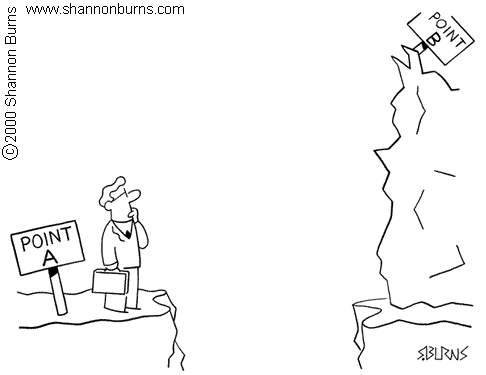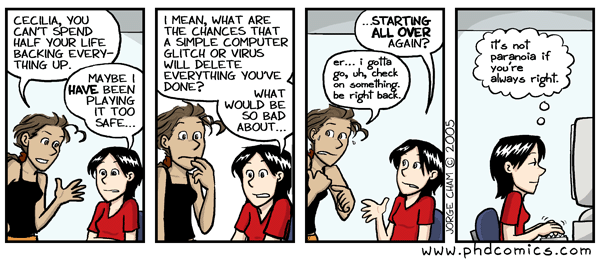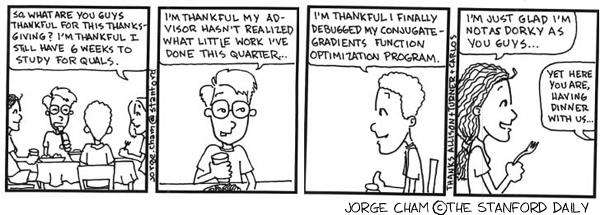It’s been a while since I’ve written – I was busy getting a new ACL (Tuesday Tip: Don’t tear your ACL by playing soccer with teenagers when you are not a teenager), but I’m bringing it back with a thought that’s a little tough to articulate, but has been a key part of my grad school experience. This post is a bit anecdotal, but stick with me.
Grad school is a time when we’re journeying down the path from being protocol-followers to independent scientists. We start by learning a system, and then move to posing questions, and finally, to seeing complete projects through. Said like this, grad school seems like smooth sailing from point A to point B. We all know that isn’t true. What is true is that no two grad students follow the same path, no two experiences are identical, and no two Ph.Ds are the same.
That leads to the question we all have to ask ourselves: what is it that you want out of your grad school experience?

Most people answer this by saying what career they want after they graduate, but this overlooks all of the years that you spend in school. What can you get out of that time that will be both valuable and rewarding and might even make grad school enjoyable (gasp!)? For me, this has meant giving myself a broad base and expanding my scientific network to set myself up for a future career in plant biology. It’s meant getting to know people and learning from them and figuring out what I do, and don’t, like to spend my time researching. I, like any grad student, have had to take ownership of my project, critically evaluate it, and figure out what I’ve needed to do succeed.
Once I identified gaps in my project, I had to address them. Two obstacles arose: I couldn’t get these solutions in my lab, and I didn’t have any money to go to those other places. After some searching around and talking to other scientists, I applied for funding from the Company of Biologists and spent four months at the University of Nottingham, and, a few years later, applied for funding as part of the NSF GROW program and spent six months at the Umeå Plant Science Centre in Sweden (side note, winter in northern Sweden makes State College seem tropical). From these two trips, I generated valuable data for my projects that I wouldn’t have had otherwise.
Other students have similarly taken advantage of programs and created their own opportunities. Some have obtained AAAS mass media fellowships and AAAS policy fellowships. Others have created organizations on campus, such as the Center for Science Advocacy, to bring conversations about science policy to campus. Students in the ecology program have launched the Penn State Science Café to increase conversation with the community. Check around, see what’s out there, and go for it. Don’t miss opportunities, either, or your future self will be a sad Jürgen Klinsmann watching your current self be 93rd minute Wondo.

We, as scientists, are problem solvers. Solutions don’t find us; we have to seek them out. Grad school is full of obstacles, but many people have gotten through grad school before you, and many will after you. It’s not really about buckling in for a ride, but about actually driving the car*, and fixing it every time it breaks down. You can, luckily, seek out help and advice, but in the end, it’s on you to drive and to figure out where you’re going.
* I am not sure how self-driving cars will impact this analogy, but we’re grad students and the thought of affording self-driving cars is laughable.








